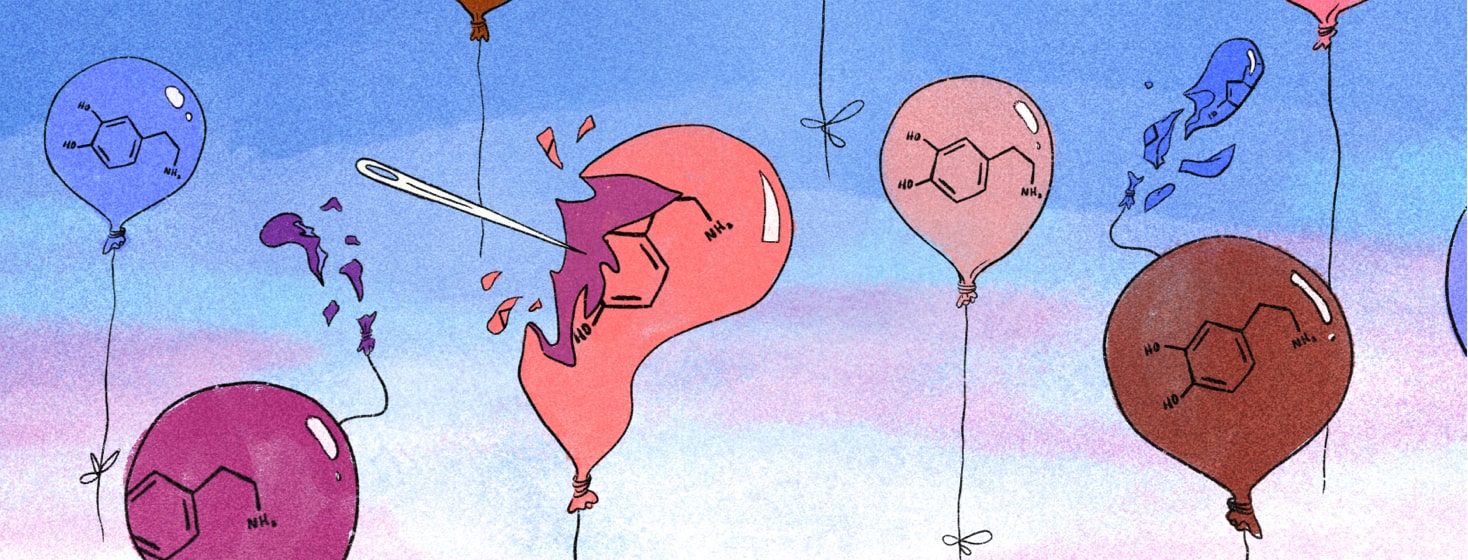ADHD and Restless Legs Syndrome: The Dopamine Connection
Restless legs syndrome (RLS) is basically a variety of uncomfortable sensations that result in an irrepressible need to move. It’s most common in the legs but can occur in all sorts of places, including arms and even the genitals.
The definition of "uncomfortable" varies greatly from person to person and can range from mildly annoying to really painful. For me personally, it’s like a swarm of tiger beetles marching down my leg — from my lower back to my ankle. Symptoms of RLS are most common later in the day and at rest.
It is estimated that up to 10 percent of the adult population experience RLS symptoms.1
What is attention deficit hyperactivity disorder (ADHD)?
Attention Deficit Hyperactivity Disorder (ADHD) is characterised by an abnormal level of inattention, hyperactivity, or impulsivity, but most commonly, a combination of these symptoms. It is usually diagnosed in childhood and, like many neurological disorders, ADHD has degrees of severity. Symptoms are generally there all the time.
It is estimated that up to 8.4 percent of children experience diagnostically significant ADHD symptoms. This statistic reduces to 2.5 percent for adults.2
What do RLS and ADHD have in common?
Both RLS and ADHD are neurological disorders that are known to be impacted by low dopamine levels. Low serum ferritin (iron stores) is also common in both conditions, and treating these underlying conditions can have a clinically significant positive impact.
When experiencing an uncontrollable need to move, it is not always easy to tell the difference between ADHD and RLS. Hyperactivity and restlessness can have remarkably similar outcomes at times. Symptoms of inattention and impulsivity, however, are not related to RLS.
What do dopamine levels have to do with sleep disorders?
Sleep disorders are common to ADHD — in particular, insomnia and RLS. As some types of medications can affect dopamine levels, it is important to consult with medical professionals when trying to treat ADHD and/or RLS-related sleep issues. Managing hyperactivity-related restlessness through medication requires a careful balance.
Medications known to have a negative impact on sleep in individuals with RLS include antidepressants, antihistamines, and melatonin. Anything that lowers dopamine — directly or indirectly — can cause an increase in symptoms.
RLS and ADHD can be tricky to distinguish in children
Back in the 1970s, when I was a child, getting diagnosed was less common. My parents just accepted they had hyperactive, sleepless kids and managed the best they could. These days, I imagine we would have been diagnosed with ADHD. As it stands, I do not have that diagnosis, but I can recognise the restlessness and hyperactivity that characterised much of my childhood and adolescence. Unlike RLS, ADHD symptoms often lessen over time, but RLS can worsen with age.
When observing our own children, it can be tricky to identify specific behaviours, as there are so many crossovers. Like any psychological or physical ailment, professional support is always invaluable. There are treatment options that can be explored for both ADHD and RLS. Dietary changes and lifestyle modifications can also help both.
The importance of treating comorbidities
Do you have comorbidities with your RLS? Sometimes treatments for other underlying conditions can negatively impact our restless legs. Sometimes conditions such as ADHD have a similar origin and treatments might work in concert with RLS to treat hyperactivity restlessness. But always, it is important to understand what is going on with our bodies and how best we can look after ourselves.

Join the conversation